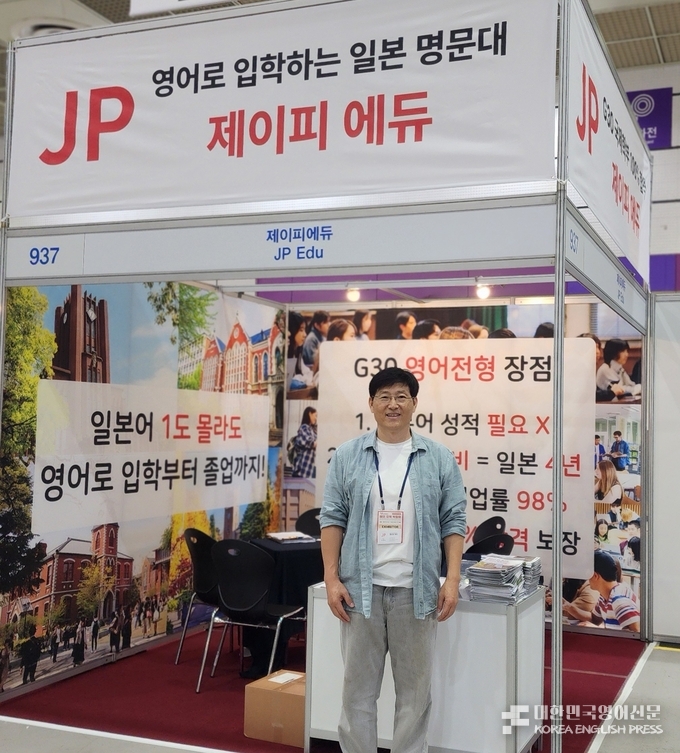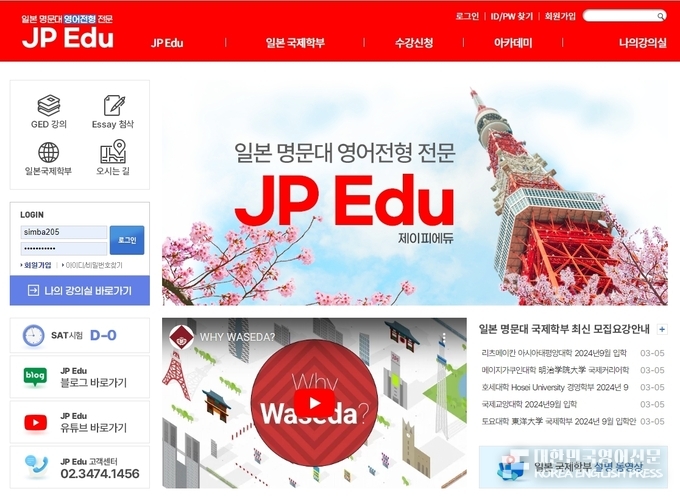Can you enter a top Japanese university without speaking Japanese?

Can you enter a top Japanese university without speaking Japanese?
Surprisingly, the answer is yes. Much like Korea’s Yonsei University Underwood International College or the Songdo Global Campus, more than 40 Japanese universities now offer full-degree programs conducted entirely in English.
These English-taught programs—often called G30 programs—are especially popular in the field of International Studies. Admission is based on a student’s academic record (GPA) and English proficiency, rather than Japanese language ability. Applicants are assessed through English proficiency tests such as TOEFL or IELTS, as well as personal essays.
A Growing Interest in Japan’s English Admissions
As awareness of Japan’s English admissions has grown, more students are turning to specialized educational institutions for guidance. One such institution is JP Edu, which focuses on preparing students for Japan’s G30 admissions.
Traditionally, international applicants to Japanese universities needed to take the EJU (Examination for Japanese University Admission for International Students), a process that can take up to two years of language study and test preparation. In contrast, the English admissions pathway allows qualified students to apply much sooner—sometimes after just three to six months of English-focused preparation.
“Several years ago, parents could hardly believe it was possible to enter a Japanese university without knowing any Japanese,” says Director Hyeong-ho Doo of JP Edu. “Now, the system has become well-known, and many families come to us after researching online or visiting education fairs. The interest keeps growing every year.”
At a recent Study Abroad Fair at COEX, Doo observed long lines of parents and students waiting for consultations—clear evidence of the rising popularity of Japan’s English-taught International Studies programs.
Career Advantages in a Changing Job Market
Director Doo also points out Japan’s demographic challenge: a declining birthrate that began over 30 years ago has now created labor shortages across industries. “Japan needs skilled workers,” he notes. “Students who complete an English-taught degree in Japan, then learn Japanese and gain global experience, are in a strong position for employment.”
Many graduates of these programs spend a year abroad—studying in the U.K., U.S., Australia, or France—before returning to Japan. Some later join major Japanese corporations, and even move on to leading Korean companies as experienced professionals.
“The International Studies Department in Japan is a hidden treasure,” Doo adds. “It offers language immersion, international experience, and career pathways that few other systems can match.”
Why Expert Consulting Matters
With growing competition for these English-taught programs, early preparation has become essential. Director Doo recommends applying six months to one year in advance to improve success rates.
“Some students apply on their own or through other agencies and get rejected,” Doo explains. “Then they come to us for help. The process is not as straightforward as applying to universities in Hong Kong or Singapore—it’s more complex, and each Japanese university has unique requirements.”
Domestic Korean students, he adds, often have strong study habits but inconsistent grades, while international school students may have good GPAs but weaker academic fundamentals. JP Edu bridges these gaps through targeted preparation.
In fact, JP Edu operates as a full-fledged English proficiency training center, offering courses in TOEFL, IELTS, SAT, ACT, and AP. Its expertise lies in helping students who may not reach top Korean universities discover new opportunities abroad.
“For students who want a world-class education without the fierce domestic competition,” Doo says, “Japan’s English admission programs offer a realistic and strategic alternative.”
JP Edu
Tel: 02-3463-0101
www.jpedu.net

[대한민국영어신문]























